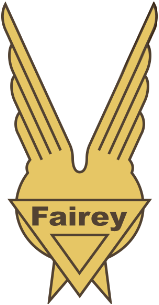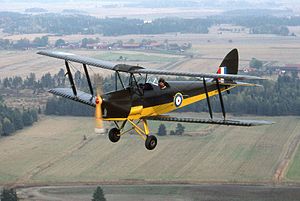
The de Havilland DH.98 Mosquito is a British twin-engined, shoulder-winged multirole combat aircraft, introduced during the Second World War. Unusual in that its frame was constructed mostly of wood, it was nicknamed the "Wooden Wonder", or "Mossie". Lord Beaverbrook, Minister of Aircraft Production, nicknamed it "Freeman's Folly", alluding to Air Chief Marshal Sir Wilfrid Freeman, who defended Geoffrey de Havilland and his design concept against orders to scrap the project. In 1941, it was one of the fastest operational aircraft in the world.

Airspeed Limited was established in 1931 to build aeroplanes in York, England, by A. H. Tiltman and Nevil Shute Norway. The other directors were A. E. Hewitt, Lord Grimthorpe and Alan Cobham. Amy Johnson was also one of the initial subscribers for shares.
Parnall was a British aircraft manufacturer that evolved from a wood-working company before the First World War to a significant designer of military and civil aircraft into the 1940s. It was based in the west of England and was originally known as George Parnall & Co. Ltd.

The de Havilland Aircraft Company Limited was a British aviation manufacturer established in late 1920 by Geoffrey de Havilland at Stag Lane Aerodrome Edgware on the outskirts of north London. Operations were later moved to Hatfield in Hertfordshire.

The Fairey Aviation Company Limited was a British aircraft manufacturer of the first half of the 20th century based in Hayes in Middlesex and Heaton Chapel and RAF Ringway in Lancashire. Notable for the design of a number of important military aircraft, including the Fairey III family, the Swordfish, Firefly, and Gannet, it had a strong presence in the supply of naval aircraft, and also built bombers for the RAF.

The Airspeed AS.51 Horsa was a British troop-carrying glider used during the Second World War. It was developed and manufactured by Airspeed Limited, alongside various subcontractors; the type was named after Horsa, the legendary 5th-century conqueror of southern Britain.
de Havilland Aircraft Pty Ltd (DHA) was part of de Havilland, then became a separate company. It acquired the Commonwealth Aircraft Corporation in 1985 and was purchased by Boeing in 2000 and merged with the Boeing owned AeroSpace Technologies of Australia to become Hawker de Havilland Aerospace Pty Ltd. In 2009, the name was changed to Boeing Aerostructures Australia (BAA) and is a subsidiary of Boeing Australia Ltd.

Boulton & Paul Ltd was a British general manufacturer from Norwich, England that became involved in aircraft manufacture.

Fishponds is a large suburb in the north-east of the English city of Bristol, about 3 miles (5 km) from the city centre. It has two large Victorian-era parks: Eastville Park and Vassall's Park. The River Frome runs through both with the Frome Valley Walkway alongside it. A restored mill found at Snuff Mills near the Vassall's Park end of the river has kept its original waterwheel, which can still be seen and heard turning. Eastville Park has a large boating lake with central wildlife reserves. Fishponds is mainly residential. Two main bus routes pass through. Housing is typically terraced Victorian. The high street shops include a butcher, charity shops, takeaways and Lidl, Aldi and Morrisons supermarkets. It has a small student population from the presence of the Glenside campus of the University of the West of England. The name Fishponds derives from when it was a quarry district, like nearby Soundwell. The empty quarries became large fishponds, which have since been filled in. One remained until the mid-1970s, when it was officially closed: a popular swimming area named "The Lido" by locals. It now belongs to an angling club.
Cosmos Engineering was a company that manufactured aero-engines in a factory in Fishponds, Bristol during World War I. Sir Roy Fedden, the company's principal designer, developed the 14-cylinder radial Mercury engine during this period. The company was taken over by the Bristol Aeroplane Company in 1920.

Fairchild Aircraft Ltd. was an aircraft manufacturer active at Longueuil, Quebec, Canada in the period 1920–50. It served as a subsidiary of the Fairchild Aircraft company of the United States.

The Parnall Panther was a British carrier based spotter and reconnaissance aircraft designed and developed by Parnall and Sons in the latter years of World War I, continuing in service until 1926. A total of 150 Panthers were built by Bristol Aeroplane Company since after the end of World War I Parnall had stopped aircraft manufacture.

Government Aircraft Factories (GAF) was the name of an aircraft manufacturer owned by the Government of Australia based at Fishermans Bend, a suburb of Melbourne in Victoria. It had its origins in the lead-up to World War II, during which it was known as the Department of Aircraft Production (DAP). In 1987, GAF was reorganised and renamed as Aerospace Technologies of Australia (ASTA) then privatised. ASTA was purchased by Rockwell USA, who was in turn purchased by Boeing a few years later. ASTA subsequently formed the nucleus of Boeing Australia.
George Adlam & Sons Ltd was an iron and brass foundry and engineering company in Fishponds, Bristol, England.

de Havilland Propellers was established in 1935, as a division of the de Havilland Aircraft company when that company acquired a licence from the Hamilton Standard company of America for the manufacture of variable-pitch propellers at a cost of about £20,000. Licence negotiations were completed in June 1934.
The de Havilland DH.72 was a large British three-engined biplane bomber, designed as a Vickers Virginia replacement. It did not go into production.
Heston Aircraft Company was a British aircraft manufacturer based at Heston Aerodrome, Middlesex, England.
Elliotts of Newbury was a British company that became well known for manufacturing gliders.

British shadow factories were the outcome of the Shadow Scheme, a plan devised in 1935 and developed by the British Government in the buildup to World War II to try to meet the urgent need for more aircraft using technology transfer from the motor industry to implement additional manufacturing capacity.
E. S. & A. Robinson was a British paper, printing and packaging company founded in Bristol in 1844. In 1966 it was merged with John Dickinson Stationery to form the Dickinson Robinson Group (DRG) creating one of the world's largest stationery and packaging companies.














